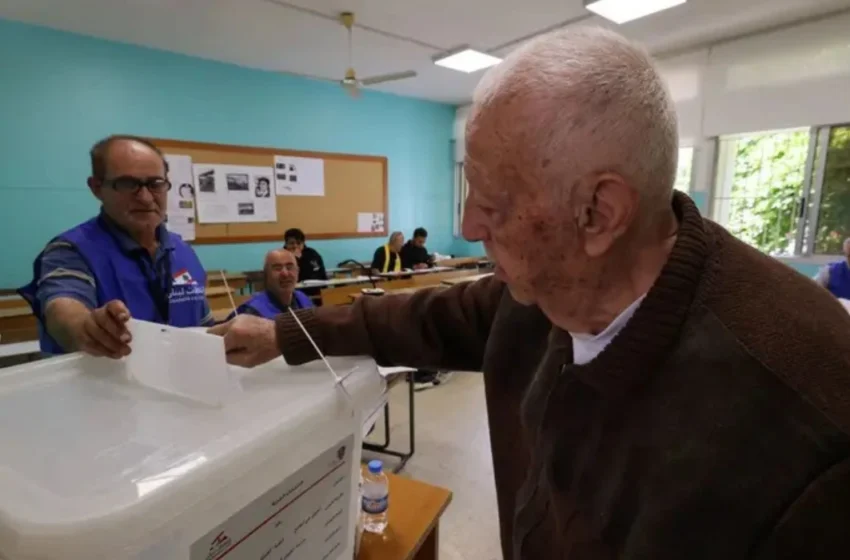
Beirut (Europe Brief News) – The first round of municipal elections started in Lebanon on Sunday, and political stability was pursued after last year’s Israel-Hezbollah war and the creation of a national government framework.
As reported by Alarabiya News, the Mount Lebanon district started polling at 7:00 a.m. (0400 GMT) while hosting the Beirut southern suburbs where Hezbollah maintains its base following extensive Israeli bomb damage during the 2023-2024 war.
“We have come to exercise our right and have our voices heard,”
said Hashem Shamas, 39, a Hezbollah supporter, after casting his ballot in the Shiyah neighbourhood of south Beirut.
The Interior Ministry tracked 9,321 candidates for this first voting round, with 1,179 women among them.
A Test for Lebanon’s Fragile Recovery
The elections represent the first voting opportunity for voters since 2016, during this period of national physical and political reconstruction for Lebanon. The initial voting date of April 2024 was shifted because of the war that developed into significant Israeli bombings and then evolved into ground combat operations before destructive forces ended.
President Joseph Aoun emphasised the elections’ significance, stating they would
“give confidence to the people and internationally that Lebanon is rebuilding its institutions and is back on the right track.”
He urged voters to resist letting “sectarian, partisan or financial factors” influence their choices.
New Government Faces Daunting Challenges
The elections took place in February after Prime Minister Nawaf Salam established the government, which ended two years without political representation. The government plans to pursue reforms which will earn international confidence and access bailout funds to solve Lebanon’s five-year economic crisis. A major promise of the new government includes instituting national control over firearms despite the concern about Hezbollah’s deep-rooted military role.
Hezbollah’s Diminished But Persistent Role
The militant group suffered substantial losses after the war, which included the death of its main leader, Hassan Nasrallah, and major damage to its presence across southern and eastern Lebanon and southern Beirut. Despite the ceasefire, Israel continues to conduct strikes in Lebanon and maintains troops in what it describes as five “strategic” areas.
Staggered Voting Across the Country
The municipal elections are taking place in divisions, which are scheduled as follows:
- May 11: Northern Lebanon
- May 18: Beirut and the Bekaa Valley
- May 24: Southern Lebanon, the region most devastated by the war
Every voting day will end at 7:00 p.m. Municipal ballots in Lebanon’s sectarian system enable political candidates to emphasise local issues more than in national elections because local dynamics gain substantial influence on election results.
The world observes how Lebanon’s recent elections represent a true political transition or maintain the gravity of its societal polarities.


